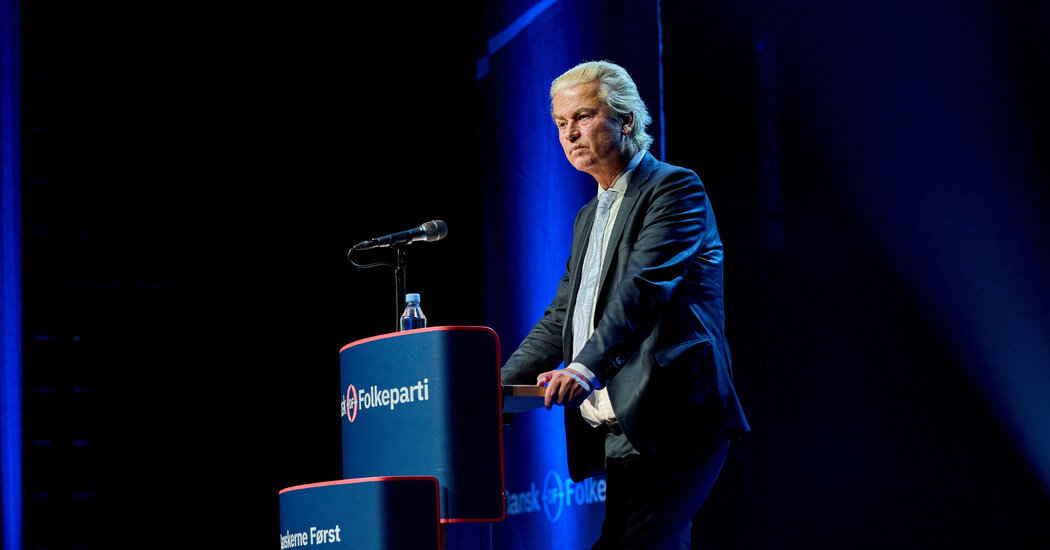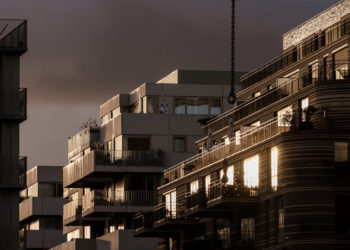The Netherlands holds parliamentary elections on Wednesday, after the far-right party of Geert Wilders forced the collapse of the nation’s governing coalition earlier this year.
Mr. Wilders, a populist known for being anti-Islam and anti-migrant, remains a main character in this election. The vote, to choose 150 members of Parliament, is effectively a referendum on the far right and a test of the current popularity of nativist ideas.
As much of Europe lurches toward the right on issues including asylum, the results could offer a snapshot of how other far-right parties will fare in national votes even after causing political upheaval.
Here’s what to watch for as Dutch voters cast their ballots.
Will the far right lose ground?
The Netherlands is voting to fill its 150-seat House of Representatives, the main legislative body of the two-house Parliament. Polls suggest that Mr. Wilder’s party, the Party for Freedom, or PVV, is likely to lose some spots.
The party slipped in popularity after blowing up the government this year. It had swept into power after a landslide win in 2023, but Mr. Wilders never became prime minister: He didn’t have enough support to form a right-wing coalition if he insisted on having the top job.
Then, he pulled out of the governing coalition this June because he felt that it was taking an insufficiently extreme stance on migration. He was pushing a 10-point plan that called for deploying the army to patrol borders and shutting asylum centers, among other measures.
The ensuing chaos led to a snap election.
The PVV is still poised to win the most seats, based on polls. But it could be closely followed by a left-wing alliance of the Green Party and Labour Party and by centrist parties, including a slightly progressive one called the D66 and the mildly right-leaning Christian Democrats.
Some of the PVV’s former voters seem to be defecting to other parties on the far right. JA21, another very conservative party, has climbed in polls.
Because no party is likely to win a majority, it is expected that a coalition will have to form. At least 27 parties are running, and 16 are expected to win seats in Parliament.
Many of the largest parties have made it clear that they will not join another coalition with Mr. Wilders’s PVV. If they maintain that stance, the PVV would most likely be left outside of governing — and Mr. Wilders would have no chance at becoming prime minister.
Who will run the government?
While it should quickly become clear who picked up seats, forming a coalition after the vote is likely to be a grinding process.
Forming a new government could take months, said Henk van der Kolk, a political scientist at the University of Amsterdam.
Because so many voters have remained undecided in the final days before the election, polls show, it is difficult to predict the results or what coalition might ultimately govern.
Several candidates could be prime minister. Henri Bontenbal from the Christian Democrats and Frans Timmermans from the center left are among the possibilities.
The most recent prime minister, who is still serving in a caretaker role, is Dick Schoof. Politically independent and a former intelligence chief, Mr. Schoof was a surprise pick after Mr. Wilders withdrew his own name from consideration.
What are the biggest issues?
Migration has remained an important issue, especially asylum policy.
“It is such an easy issue to connect everything else to,” said Mr. van der Kolk, the political scientist. Candidates frequently tie migration to the other big issues, especially crime and housing costs.
While much of the rhetoric focuses on refugees, only about 12 percent of migrants to the Netherlands are seeking asylum. A vast majority of newcomers are either students or workers, and the latter are an important source of labor.
Like much of Europe, the Netherlands is aging, and immigration is its driving source of population growth.
Still, the topic shows staying power, especially as the country faces big and intractable problems including rising home prices and a limited home supply. Such issues are hard to fix and easy to blame on outsiders.
But it is also possible that voters will be looking for more stability after years of government chaos, said Barbara Vis, a politics professor at Utrecht University. While the Netherlands should in theory hold parliamentary elections every four years, government collapses have spurred votes in 2021, 2023 and now 2025.
“There’s really longing for a little more reliability,” Ms. Vis said.
Will this government last?
One big question is whether this election will break the Netherlands out of a yearslong cycle of political instability. The answer is likely to depend on how the governing coalition is formed and on whether any party feels it can gain ground by destabilizing it again.
“Given that it will probably be a four- or five-party coalition, real stability will not be found,” Mr. van der Kolk said, unless support for those parties remains so steady over time that they prioritize working together.
Jeanna Smialek is the Brussels bureau chief for The Times.
The post The Netherlands’ Election Is a Referendum on the Far Right appeared first on New York Times.




